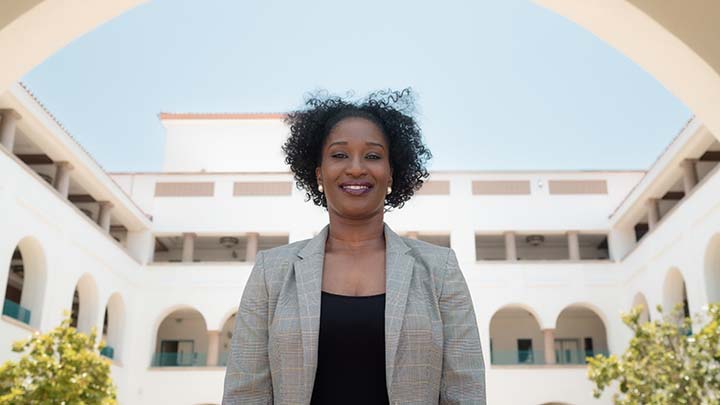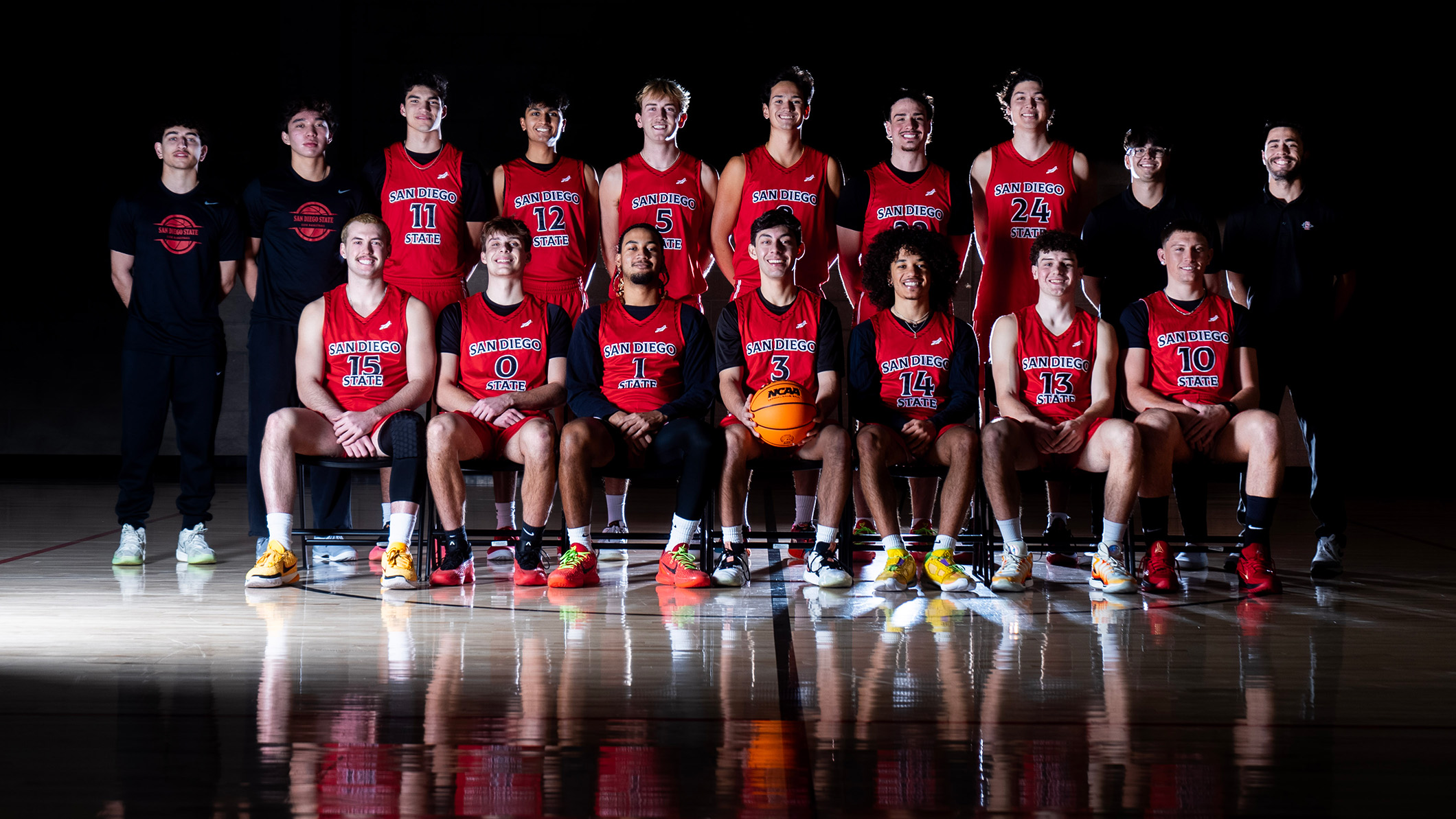Fulbright Scholar returns to Jamaica in search of untold stories
Doctoral student Kimberley Folkes-Dunkley will grapple with questions of identity — including her own — during a nine-month research project in her home country.

Trelawny Parish Library, in Jamaica’s historic colonial town of Falmouth, sits just one block from the blue-green majesty of the Caribbean Sea.
What better setting to dream big dreams?
As a young girl, Kimberley Folkes-Dunkley spent many hours inside the modestly sized library. She would sit in a corner to read, or perhaps to daydream. Often, she’d imagine what life would be like for her in farin — how the U.S. is often referenced in Jamaican patois.
“That community was where I had these longings, these dreamings of being in America," recalls Folkes-Dunkley, now a doctoral student in San Diego State University’s Joint Ph.D. Program in Education with Claremont Graduate University.
This summer, Folkes-Dunkley finds herself daydreaming about being back in that little library by the sea.
Fulbright homecoming
Folkes-Dunkley is preparing to return to her homeland in August as part of the Fulbright U.S. Scholar Program, a U.S. Department of State program that enables scholars, professionals and artists to conduct research and carry out professional projects around the world. During her nine-month project, she will build on dissertation research into the untold stories of underrepresented and underserved populations, particularly Afro-Jamaican college students who have migrated or aspire to migrate to the U.S. to study.
Partnering with Carol Hordatt-Gentles at the University of the West Indies Mona, Folkes-Dunkley will collect the stories of students who have successfully attained an education in the U.S., including those who decided to return to Jamaica. Through focus groups and interviews, she’s eager to ask how it went, why they stayed or didn’t, and how the experience impacted their identities.
Folkes-Dunkley will also speak to young people aspiring to migrate about their motivations and aspirations.
“At the heart of the matter, I am trying to get at identity — understanding how we define it, how we create it, how it’s shaped based on context and location,” she explains. “In doing so, we can understand who we are in the world, how we show up and how to create more empathetic, equitable, and harmonious societies.”
Migration and identity
Folkes-Dunkley’s own story is one with many twists and turns. She was born into a civically active family in rural Jamaica. Her maternal grandfather, Hernal Heartlan Hines, was Councillor — equivalent to a city council member — in the local electoral division.
“Growing up, I was just Kimberley,” she said. “I didn't have any qualms about anything.”
That changed as Folkes-Dunkley’s own migratory experience unfolded. At age 12, she immigrated with her family to farin, first to Florida and then to Hayward, California. She quickly realized that the streets of the U.S. were not paved with gold like she’d been led to believe. And almost overnight, “just Kimberley” had entirely new parts of her identity to come to terms with.
She was thrust into the American Black experience, with characteristics like skin tone, hair texture and ways of speech going from an afterthought to mattering a great deal. She was also an immigrant, meaning that even though she looked like many of her classmates, she never quite fit in, making her the target of bullying and ignorant stereotypes.
“We get racialized under this Black monolith, and what happens is we get silenced,” Folkes-Dunkley said. “Those nuances — the color, the flavor, the seasoning of who we are — get swept under the rug.”
For years, Folkes-Dunkley bottled up the trauma — until her doctoral program experience sent it all spilling out.
Doctoral journey
Folkes-Dunkley, now a community-based educator and a proud spouse of a U.S. Navy sailor, entered the SDSU program in 2020 in the early stages of the COVID-19 pandemic.
Soon she was confronted with more adversity. First was the death of her beloved grandfather, whose own stories she had been in the process of trying to collect before he passed. That hit her hard, leaving her with the nagging feeling of unfinished business.
Then came a medical crisis requiring emergency intervention and hospitalization. After a long recovery, Folkes-Dunkley summoned the will to continue in the program. Supported by the mentorship of Felicia Black, assistant professor of Child and Family Development, and the guidance of program director Marva Cappello, it proved to be a revelatory experience.
“All of these things that are bubbling up inside of me have been coming out during this program because it’s constantly forcing you to define your positionality, to tell who you are,” Folkes-Dunkley said.
A year and a half ago, she added another piece to her identity: becoming a parent. Asked what it means to have her son there for her journey home, tears flow.
"You have no idea,” she said.
All of these experiences — the good and the bad — now provide fuel for her academic fire.
“In addition to reconnecting with my homeland and its beautiful people, the Fulbright will enable me to make their presence visible in research and other academic spaces, centering their humanity,” Folkes-Dunkley said. “It will also allow me to tell my own personal story as I'm coming into my identity as a proud Afro-Caribbean, Afro-Jamaican woman.”



